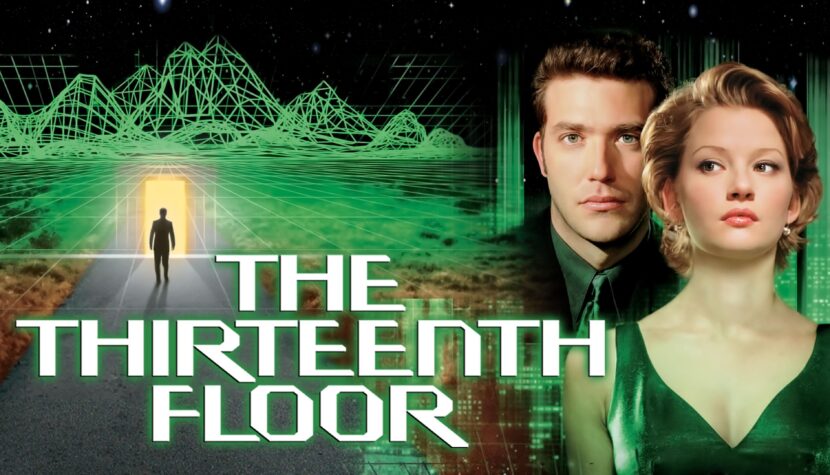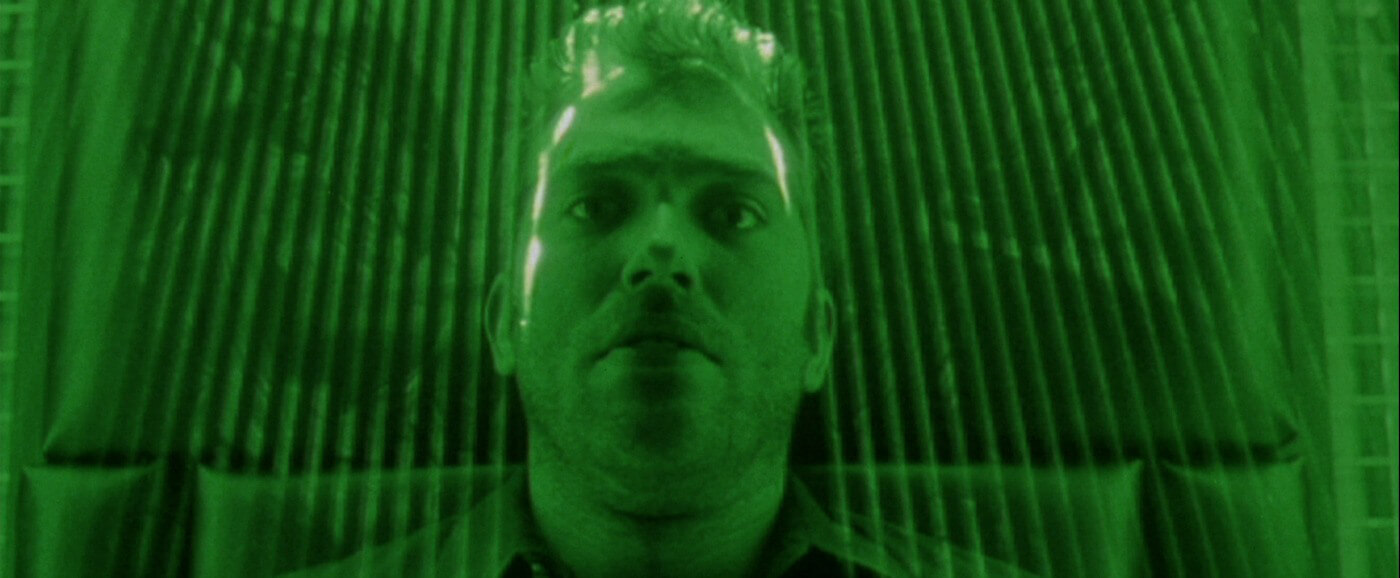THE THIRTEENTH FLOOR. Hallucination or science fiction?

It appeared in cinema at a time when, it might seem, most of the means of cinematic expression had already been exhausted. It is a kind of decadence, assuming a desire to play with something quite ordinary, but also something refined, sophisticated, and intellectually provocative. Most films of this kind can be interpreted on two levels. Therefore, they find many viewers. They satisfy the needs of a broader audience and also the demanding viewer who gladly accepts the “proposal” to explore the second layer of meaning.
This film may not be a sophisticated example. However, it is a deliberate choice for two reasons. An excellent example to illustrate this period in contemporary cinema could be the Wachowskis’ Matrix. However, I think another review could make the reader nauseous. The Thirteenth Floor is a much less ambitious film, perhaps too easy to understand, saturated with Hollywood mush that will not fully satisfy a connoisseur.

However, that’s not the point. It’s important that the film is enjoyable to watch and meets our requirements. This will be the aforementioned construction of the second layer of meaning. That is everything hidden beneath the film’s plot. More precisely, our contemporary fears and obsessions. Today’s reality no longer astonishes with new technologies. Terms like chips, implementation technologies, or nanotechnologies are no longer unfamiliar to anyone, not to mention the “worn-out” term like cyberspace. Therefore, the human body is increasingly considered in the visions of various filmmakers (and others) in the context of a “container for technology.” This leads to the statement by Stelarc that “(…) being human may be about losing humanity.” The director goes further in his film, questioning what is commonly considered a real entity. In the movie, cyberspace becomes a new environment for the presence of physical bodies. At the same time, we have doubling, and even tripling, of the world. This is one of the consequences of postmodernism. It is also the second layer forcing reflection on the relationship with the human body, machines, and all technology, for that matter. Under this unassuming plot of The Thirteenth Floor, which, by the way, did not escape minor stumbles, whether of a philosophical or simply technical nature, there is a significant issue.

Virtual space in The Thirteenth Floor initially appears as a space for action. In this artificial environment, a person is able to design all their senses. One could say that new technology has allowed the rejection of all bodily limitations. I mean the whole range of elements that make up the physical world. These include the tactile (that is, the one we know through touch) and the spacetime world. The film also involves metaphysics. Such a conclusion arises from how reality is illustrated, or rather how it is denied. The characters live initially in hope, waiting for the final effect of the computer game they are preparing, which aims to simulate something that could be called another world. When the action is initiated, it turns out that this world has a life of its own. Even though the work on the project has not yet been completed, this hallucinatory loss (the exceeding of a certain limit of reality) in no way resembles virtual play. The simulated world of The Thirteenth Floor is as real as what has been known so far. In fact, it is difficult to determine the dominance of one entity’s truth over the other. The action loops even more. The reflection also arises about how much a person can get lost in the virtual world created by themselves. One might feel lost even now, just thinking about the vision of the future proposed this time. Is all this just one big hallucination? Barely the specter of what is real? Or is it playing the prophet who sees a threat in the upcoming era?

Perhaps the statement that we are dealing with duality and with art in general is a bit stretched. However, after watching this and similar films, it is worth considering attempts to translate contemporary anxieties and concerns into the language of cinema. What does the concept of a computer network, an artificial environment also called mediatrics, really hide in all this technological novelty? In all this technological novelty, we undoubtedly have mainly to do with practice. So maybe it’s worth thinking about the theory we constantly feel dissatisfied with.
The author of the text is Marta Wieczorek.

